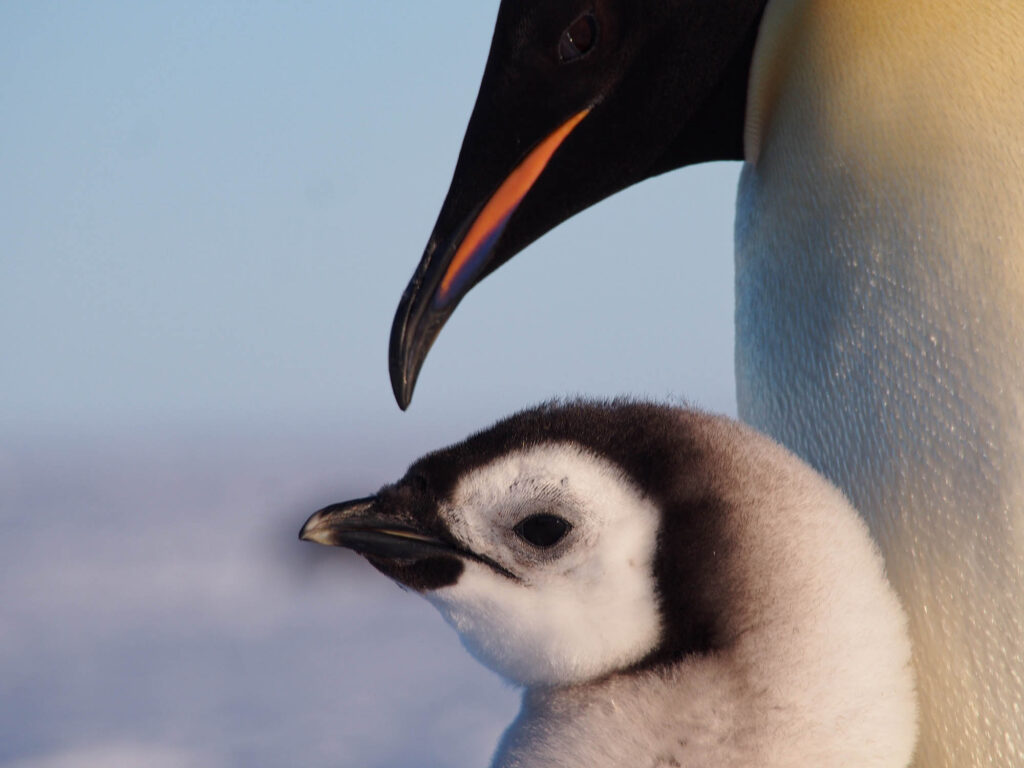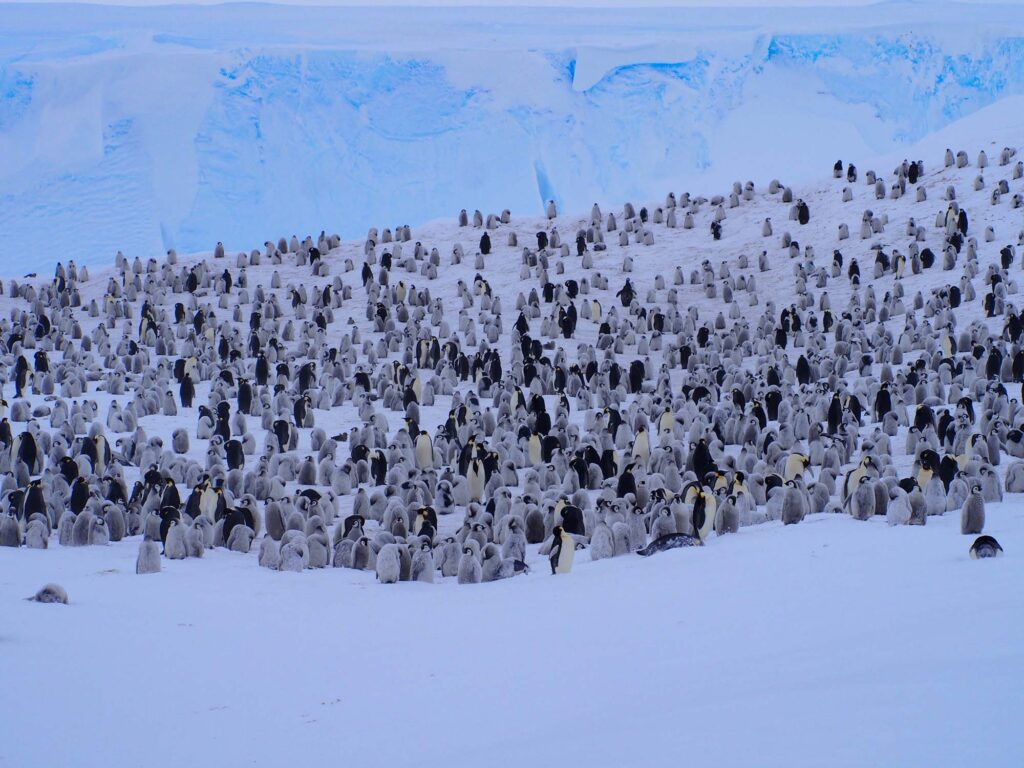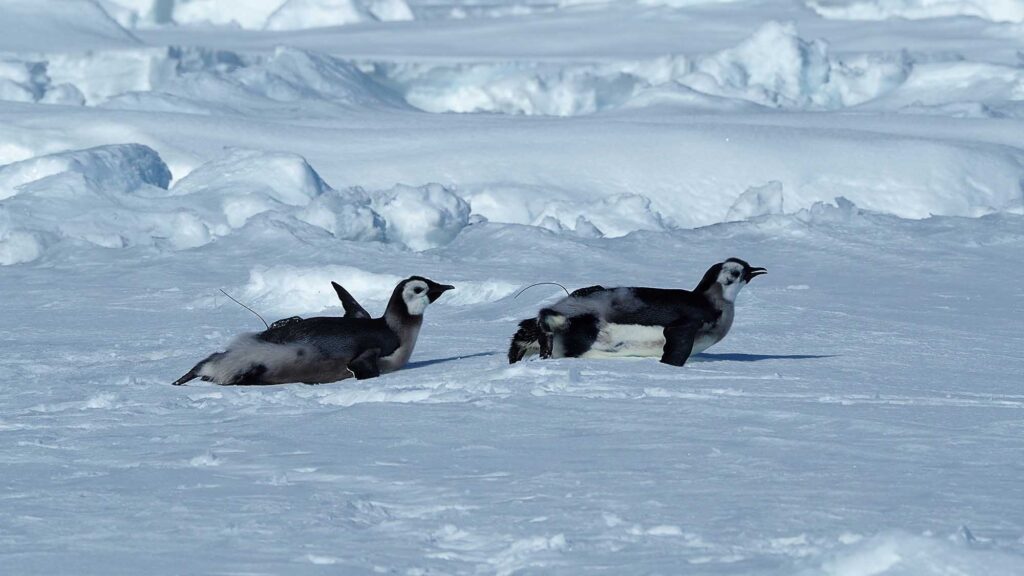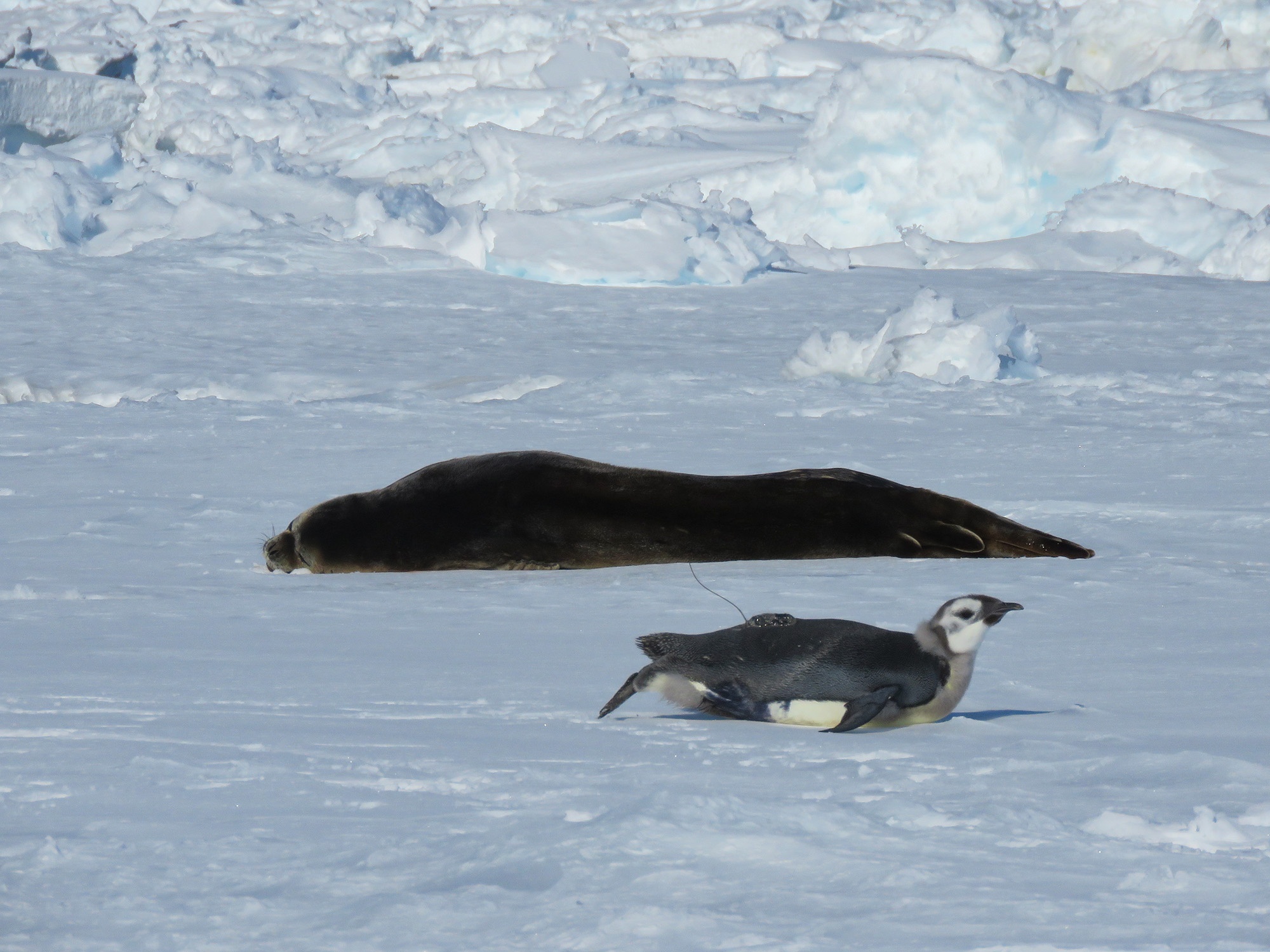Overjoyed researchers have revealed how a new study of the diet of emperor penguins shows they have no trace of microplastic in their bodies.
Doctoral candidate from the Department of Environmental Sciences at the University of Basel Clara Leistenschneider and her team were studying the impact of pollution on the South Pole.
Leistenschneider said: “We had already conducted studies of water samples there and discovered microplastics, albeit in low concentrations.”
But no research had been done on the animal pollution in the area.
So the researchers focused on a colony of emperor penguins in Atka Bay on the northeastern edge of the Ekstrom Ice Shelf.
They analysed gizzard contents of 41 dead chicks found in the colony in order to determine the level of microplastic contamination in their food sources.

(Alfred Wegener Institut, Celine Le Bohec/Newsflash)
After identifying about 85 potential plastic particles up to half a millimetre in size they then used spectral analysis to determine their properties.
To their astonishment, none of those particles were microplastics but either natural materials such as animal hair or plant matter or clothing fibres and airborne particles.
When they also failed to find any synthetic polymers in the birds’ gizzards, Leistenschneider enthusiastically emphasised: “It’s not too late for Antarctica, though.”
But despite the positive outcome of the study the researchers fear that rise in tourism and commercial fishing in the Southern Ocean could increase microplastics content in the area.

(Alfred Wegener Institut, Celine Le Bohec/Newsflash)
Emperor Penguins Live Up To 373 Miles Further North Than Previously Believed Say Boffins
Tracking of young emperor penguins in Antarctica has shown that they live about 373 miles further north than previously believed and stay far outside of their protected areas.
They stressed that action must still be taken through recycling and proper waste disposal to reduce the pollution.
Meanwhile, the Alfred-Wegener Institute that co-wrote the study announced plans to monitor emperor penguins in Atka Bay to track the process of contamination over the long term.
The study was accepted by the international peer-reviewed scientific journal ‘Science of The Total Environment’ on Tuesday, 23rd August.

(Alfred Wegener Institut, Aymeric Houstin/Newsflash)
To find out more about the author, editor or agency that supplied this story – please click below.
Story By: Georgina Jadikovska, Sub-Editor: Marija Stojkoska, Agency: Newsflash
The Ananova page is created by and dedicated to professional, independent freelance journalists. It is a place for us to showcase our work. When our news is sold to our media partners, we will include the link here.




